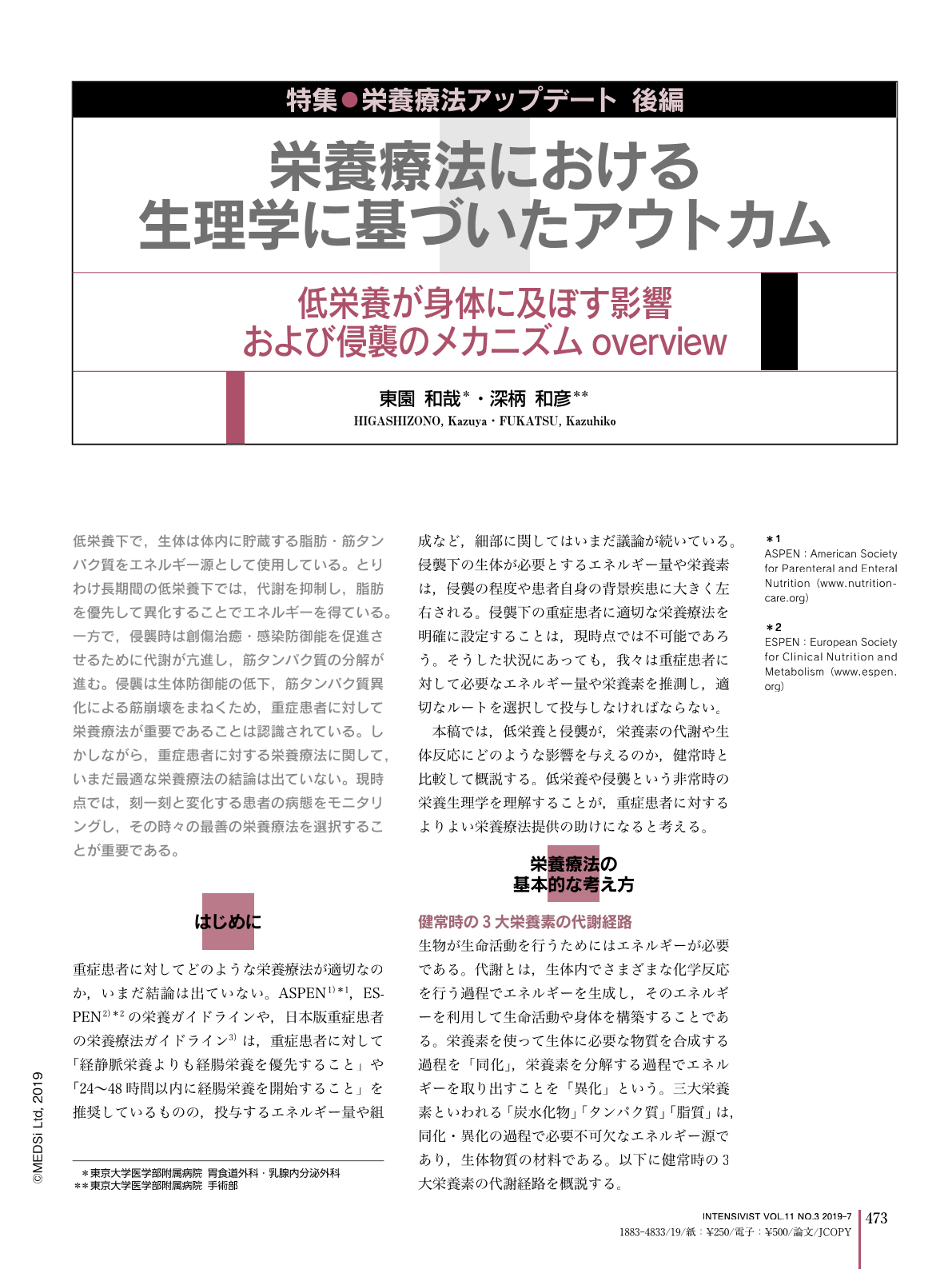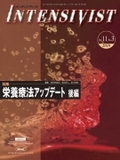Japanese
English
- 有料閲覧
- Abstract 文献概要
- 1ページ目 Look Inside
- 参考文献 Reference
- サイト内被引用 Cited by
低栄養下で,生体は体内に貯蔵する脂肪・筋タンパク質をエネルギー源として使用している。とりわけ長期間の低栄養下では,代謝を抑制し,脂肪を優先して異化することでエネルギーを得ている。一方で,侵襲時は創傷治癒・感染防御能を促進させるために代謝が亢進し,筋タンパク質の分解が進む。侵襲は生体防御能の低下,筋タンパク質異化による筋崩壊をまねくため,重症患者に対して栄養療法が重要であることは認識されている。しかしながら,重症患者に対する栄養療法に関して,いまだ最適な栄養療法の結論は出ていない。現時点では,刻一刻と変化する患者の病態をモニタリングし,その時々の最善の栄養療法を選択することが重要である。
With poor nutrition, fat and muscle protein stored in the body is used as an energy source. Particularly with long-term poor nutrition, we obtain energy by inhibiting the metabolism and catabolism of fat in preference to other nutrients such as glucose and protein. Critical illness accelerates catabolism which causes degradation of muscle protein to promote wound healing or enhance protection against infection. It has been recognized that nutrition therapy is important in the care of seriously ill patients, because critical illness reduces host defenses and causes muscle protein catabolism, leading to muscle dysfunction. However, the optimal nutrition therapy for critically ill patients has not been yet established. At present, it is important to choose the best nutrition therapy in a timely manner by monitoring a patient's clinical condition which may change moment to moment.

Copyright © 2019, MEDICAL SCIENCES INTERNATIONAL, LTD. All rights reserved.


